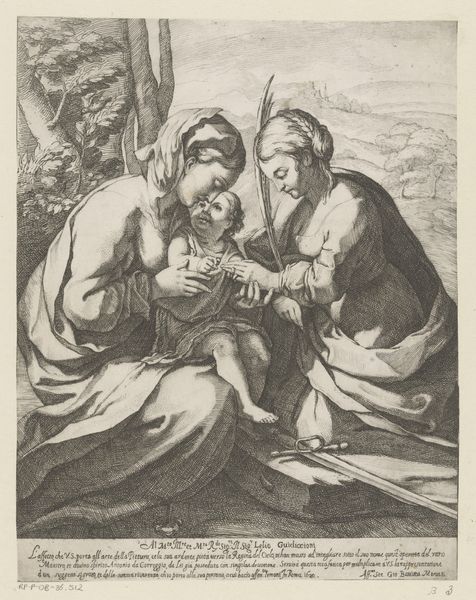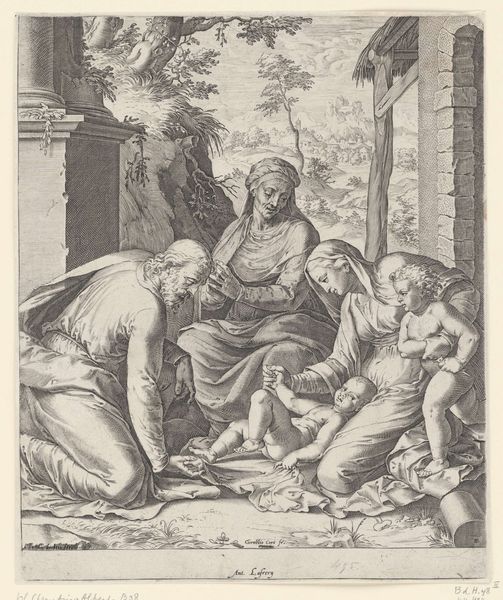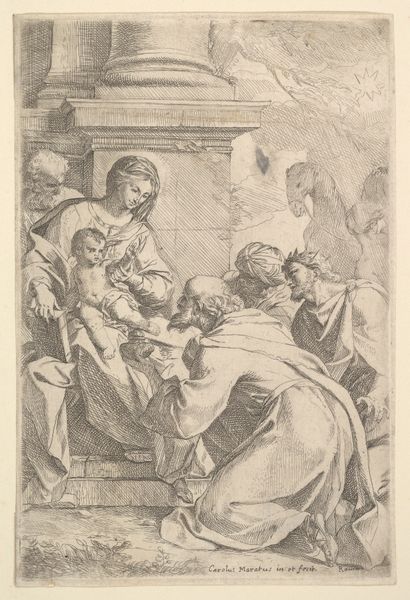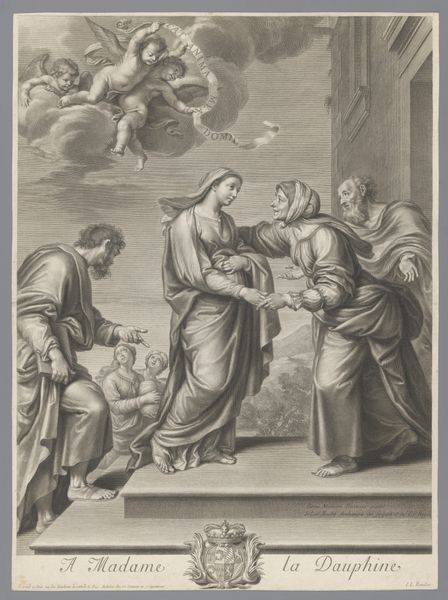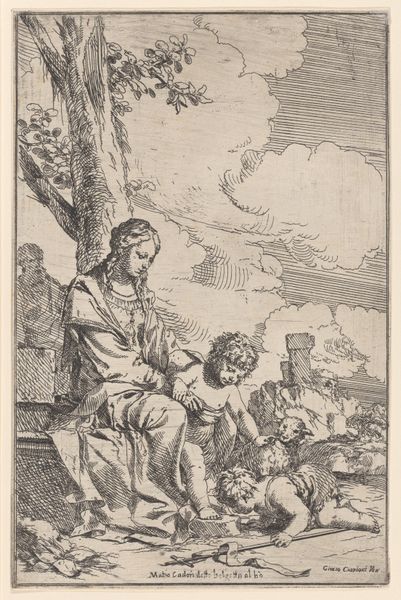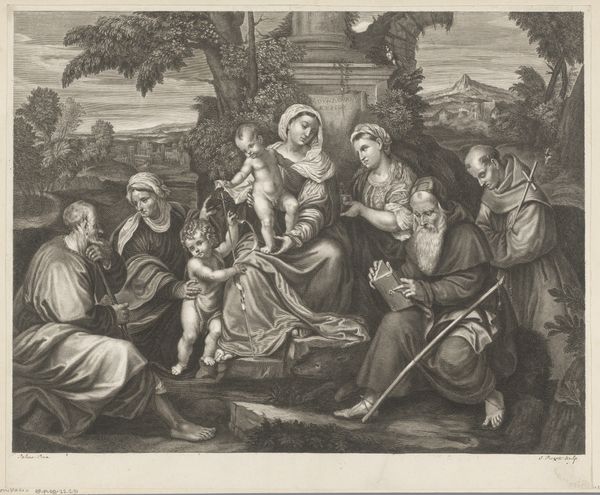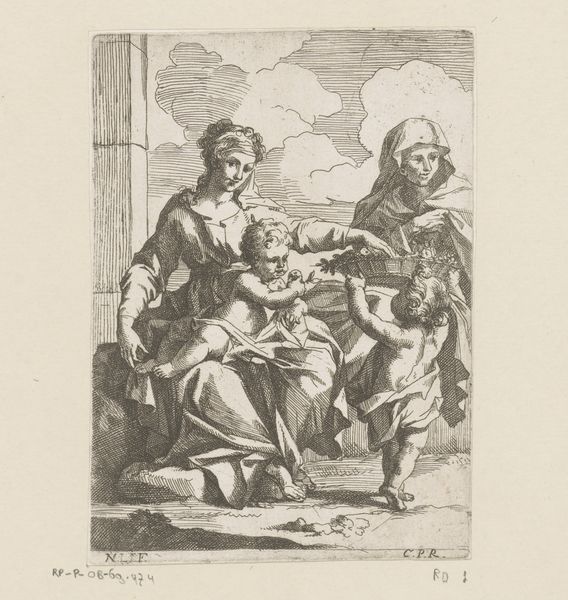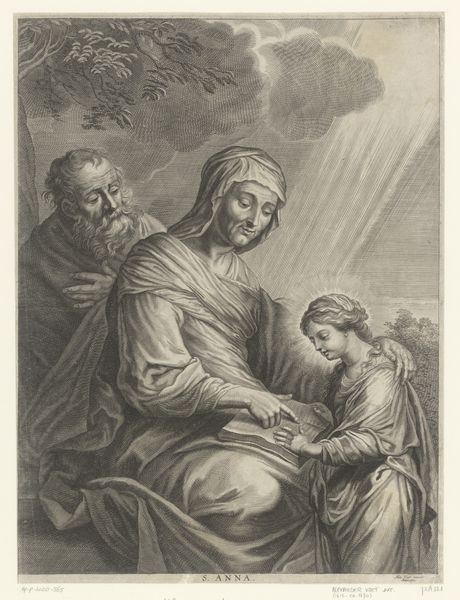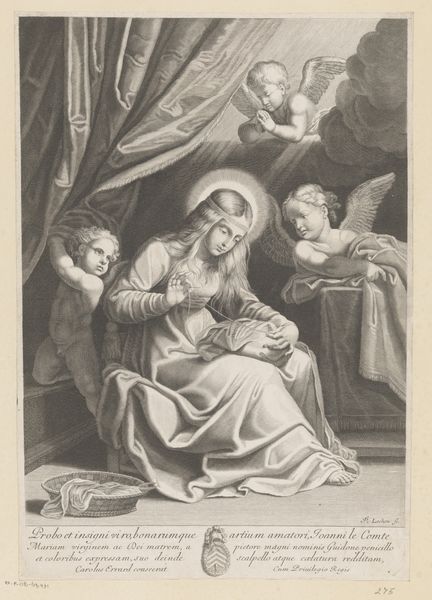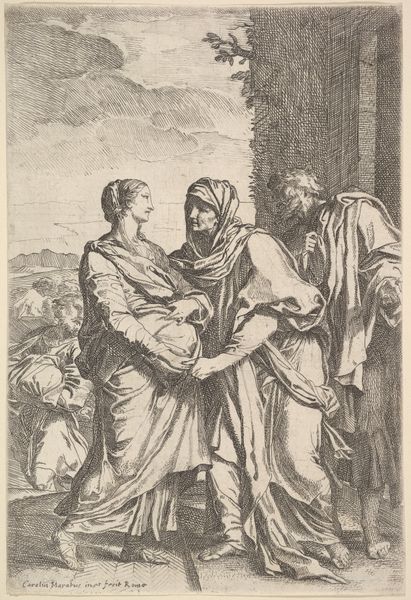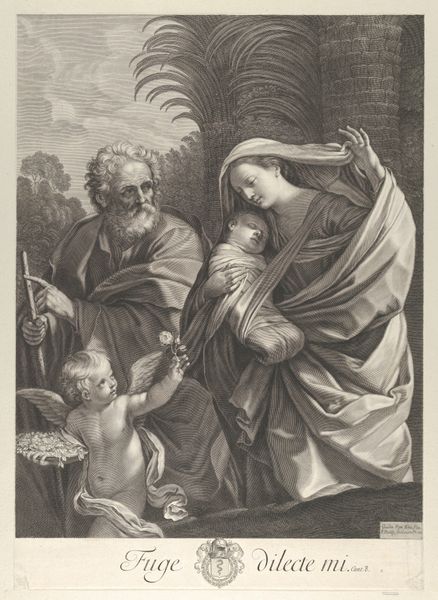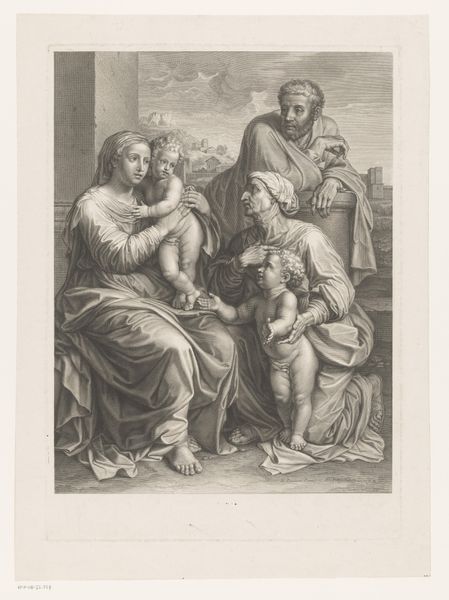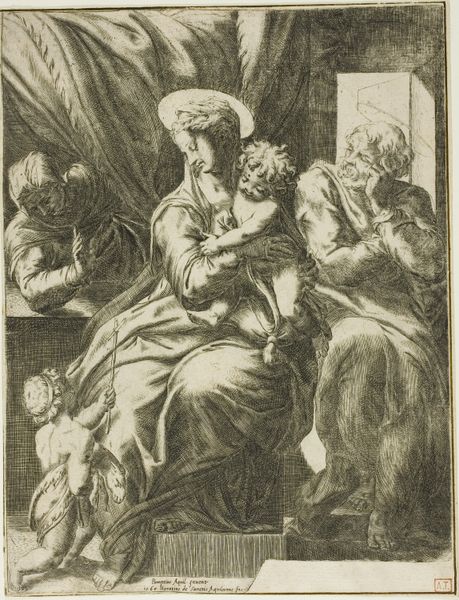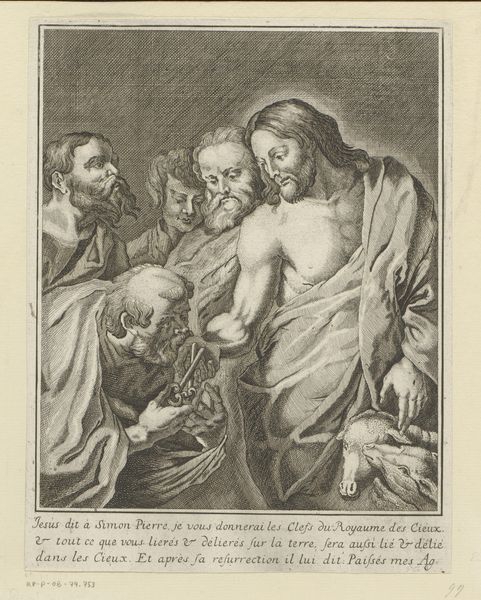
engraving
#
baroque
#
figuration
#
line
#
history-painting
#
engraving
Dimensions: height 351 mm, width 252 mm
Copyright: Rijks Museum: Open Domain
Michel Dorigny created this print, Heilige Familie, in 1643, using etching and engraving. These processes involve working lines into a metal plate, inking it, and then pressing it onto paper. These techniques, while requiring specialized tools and skills, allowed for the mass production of images, making art more accessible. Look closely at the lines, how they vary in thickness and density to create light and shadow. Dorigny skillfully uses these to model the figures and create a sense of depth. The controlled lines reflect the social context of 17th-century Europe, where printmaking played an important role in disseminating knowledge and religious imagery to a wider audience. This print, with its depiction of the Holy Family, speaks to the power of images to convey religious and cultural values. Considering the materials, processes, and social context allows us to see how the artist challenged traditional boundaries and engaged with a wider audience.
Comments
No comments
Be the first to comment and join the conversation on the ultimate creative platform.
